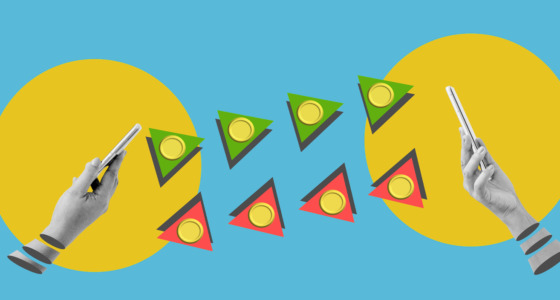

People with all levels of income can have good or bad money management. You’d think that the more money you get, the less you have to worry about it. Well, Mickey Carroll had the same thought when he won a British jackpot. But he tore through his newfound affluence with astonishing speed, as do one-third of lottery winners.
Money management is not solely about earning more money. It covers everything from saving and budgeting to setting goals and investing. It can help you achieve financial goals that once seemed impossible, and below are seven recommendations to make these goals more reachable.
Golden rule: save first, spend later

In the business world, there is a technique called Pay Yourself Last. Similarly, you can pretend the “extra money” doesn’t exist and put that money into savings as if it’s just another expense.
If you need the motivation to save, set out some ambitious goals that require a much bigger savings account than you currently have. Instead of making a spontaneous purchase, remind yourself that your choices today will impact your future.
Spend with purpose
Aim to spend money on things that have meaning behind them, whether it’s a product that you’ll use every day (a nice set of pots and pans) or something that brings you joy (scents and fairy lights). Before buying, understand what you own, perhaps you already have practically the same thing. If not, understand why you need it.
This tip helps you minimize frivolous, mindless spending and makes room for useful purchases or the ones you genuinely care about.
Don’t overcomplicate things
If your system goes left, it’s probably because you’ve made it impossible to follow. A smart and simple strategy is best. You figure out how much money is going in, keep track of your spending, analyze it, and reduce spending in certain categories. That’s most of the work done.
Interestingly, almost all of your expenses can be grouped into just seven categories:
- Housing
- Utilities
- Transport
- Food
- Clothes
- Health
- Entertainment

Get super precise
Don’t leave room for interpretation in your budgeting system. If you want to spend less on food, then figure out the exact amount it should be. In other words, make quantifiable goals. For example, if you’re spending $50 a week on takeout, plan to spend half as much the next week.
The same goes for all your spending categories. Running out of money in the entertainment category for the month means that you’ll either use funds from a different category or wait until the next month.
Think in milestones

A financial milestone, or a “significant point”, is what you make of it: no debt, home ownership, three times the annual salary saved, whatever else you’re aiming for.
Many find it intimidating to envision their end goals. But what if you take things one step at a time? Then you’ll have specific checkpoints that seem more manageable. When you define milestones for yourself, the long path to financial freedom seems easier to climb.
Put your money to work
The money you have now can continuously improve your financial stability and security. Once you have your debts repaid and savings topped up, consider investing.
Long-term investments are famously less risky, so be prepared to let money develop for years before you can reap the rewards. In the meantime, you can try trading for short-term results. Although, if you invest in dividend-paying stocks, they will provide a stable additional income in the long term (or at least until the company cuts them).
Dare to be different
Your destination may be the same as someone else’s, but you walk different paths. You can adjust the recommendations from above to fit your current financial situation, the tools you have, and other personal factors. Come up with your own system and mental tricks to improve your financial health, if you wish.
Ironically, following someone else’s set of rules is not as important as having a system that you can realistically stick to.








